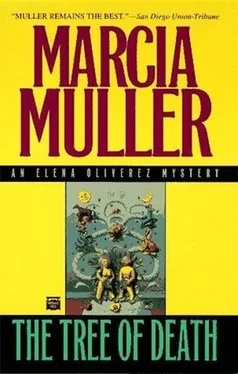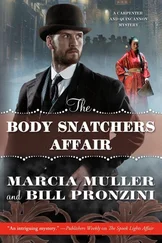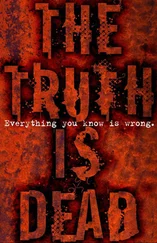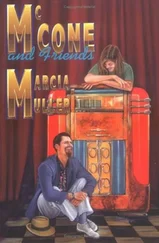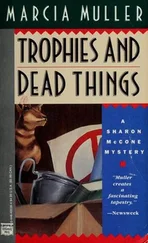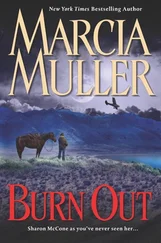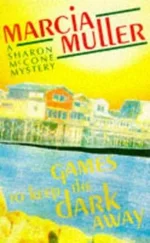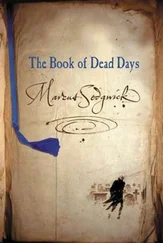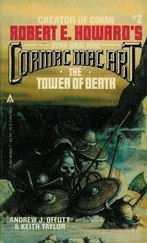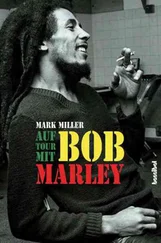Marcia Muller - The Tree of Death
Здесь есть возможность читать онлайн «Marcia Muller - The Tree of Death» весь текст электронной книги совершенно бесплатно (целиком полную версию без сокращений). В некоторых случаях можно слушать аудио, скачать через торрент в формате fb2 и присутствует краткое содержание. Жанр: Детектив, на английском языке. Описание произведения, (предисловие) а так же отзывы посетителей доступны на портале библиотеки ЛибКат.
- Название:The Tree of Death
- Автор:
- Жанр:
- Год:неизвестен
- ISBN:нет данных
- Рейтинг книги:5 / 5. Голосов: 1
-
Избранное:Добавить в избранное
- Отзывы:
-
Ваша оценка:
- 100
- 1
- 2
- 3
- 4
- 5
The Tree of Death: краткое содержание, описание и аннотация
Предлагаем к чтению аннотацию, описание, краткое содержание или предисловие (зависит от того, что написал сам автор книги «The Tree of Death»). Если вы не нашли необходимую информацию о книге — напишите в комментариях, мы постараемся отыскать её.
The Tree of Death — читать онлайн бесплатно полную книгу (весь текст) целиком
Ниже представлен текст книги, разбитый по страницам. Система сохранения места последней прочитанной страницы, позволяет с удобством читать онлайн бесплатно книгу «The Tree of Death», без необходимости каждый раз заново искать на чём Вы остановились. Поставьте закладку, и сможете в любой момент перейти на страницу, на которой закончили чтение.
Интервал:
Закладка:
That covered a lot of territory, but I was willing to bet on South America, possibly Bogota’t where Tony was from. Varig flew out of L.A. International, and Tony’s bag had been coded for a return trip there. This called for mathematics, never my strong suit. I took out a pencil and a piece of scratch paper.
I wrote, “12:30,” the approximate time Tony had returned home, near the bottom of the page. How long did it take to drive here from L.A. International? At this time of night, in light traffic, about two hours. Farther up the page, I wrote, “10:30.”
All right. I’d have to knock off another hour for baggage claim and customs. I crossed out the other figure and wrote “9:30.”
That was it: I wanted a Varig flight arriving at LAX at around nine-thirty. Varig had a twenty-four-hour information and reservations line. I pulled the phone toward me and dialed.
When the sleepy-sounding clerk answered, I said, “I’m interested in service from Bogota. I understand you have a flight that arrives around nine-thirty in the evening.”
“Service to or from Bogota?”
“From.”
“Just a moment, please.” There were background noises that sounded as if he was typing. “I’m sorry, our flight from Bogota gets in at seven-oh-five.”
“ Are you sure? I mean, I thought there was a flight around nine-thirty.”
“No, the computer says seven-oh-five, ma’am.”
“Well, what does get in at around nine-thirty?”
“You wanted service from Bogota…”
“Could you check and see where the nine-thirty flight originates? I’d sleep better knowing.”
Surprisingly, he laughed. “I get what you mean. Hold on.” The typing noises began again. “You’re talking about our flight from Rio. It arrives at nine-forty-seven.”
“Rio?” I’d been to Rio; it was more than a thirteen-hour flight. Tony could not possibly have gone there and back, plus cleared customs and traveled to and from the airport, in the time allotted. “Does it stop anywhere?”
“Yes, Lima, Peru.”
“Lima. How long a flight is that?”
“About seven hours.”
Tony could have done that easily. “What about the flight to Lima? When does that leave?”
“Ten-thirty-eight in the evening.”‘
“Thanks,” I said, “you’ve been a great help.”
“Do you want to book any of those flights?”
“Um, no. I’ve got to think about it.”
“Fine. And will you be able to sleep better-knowing about the Rio flight?”
“I certainly will.”
“Sweet dreams.” He probably thought I was one of those lonely people who make phone calls to airlines in the middle of the night so they can hear another human voice.
I’d asked about service from Bogota on the off chance Tony had been called home on some family emergency. But instead he’d been to Lima, Peru-however briefly. Now I could reconstruct the scenario of what had happened.
Tony had returned home some time after five yesterday, and Susana had driven him to L.A. International. The latest he could have left Santa Barbara in order to make the flight was seven-thirty. That still gave him plenty of time to kill Frank. Of course, I had my doubts Tony was smart enough to figure a way out of the museum that neither the police nor I could understand, but I’d worry about that later.
Okay, Tony had flown to Lima and probably been asleep in his hotel or wherever he was staying by the time Susana had called him to say Frank was dead-or that his body had been discovered. Since his absence would have looked suspicious, he’d caught the return flight, and Susana had covered for him all day by not answering the phone or door.
But, if he’d killed Frank, would he have returned? Maybe, if he thought he wouldn’t be suspected.
But then, why fly to Lima at all? Did Tony take these trips every time he called in sick? Were they always to Lima, or did he travel to other cities? And why?
Whatever the reason, I had a feeling it wasn’t legal.
eight
The next morning the paper was full of news about Frank’s murder. The coverage was factual, but there was an undertone of questions. Why had this happened practically on the eve of the museum’s opening? What had the director been doing alone in the galleries after the museum had closed its doors for the day? Was one of the other employees a possible suspect? Could the director somehow have brought this on himself?
I wondered if the questions would have been so thinly veiled had we not been a minority museum. And I also wondered what more publicity of this type would do to us.
As official representative of the museum, I had to pay a condolence call on the De Palmas. I puttered around the house until nearly eleven, then got into the car and drove north through town. Frank’s family lived in a sprawling single-story ranch house on one of the streets that wound high on a bluff above Santa Barbara Point. It wasn’t Montecito, where Isabel lived in lonely splendor in her Spanish-style mansion, but it was not bad for a boy who had come out of the barrio. Twenty years ago, real estate agents would have steered anyone with a surname like De Palma away from this district. Times had changed, however, and Frank’s neighbors were glad to have a citizen of the chic art world right across the fence. I doubted they invited the De Palmas to their parties, though.
Frank’s brother Robert answered the door. His face was dour and jowly, and his hair hung down in greasy-looking strands. His dark suit fit him like a sausage casing. Still, I looked at him with new interest. This was not merely rotund Robert; it was the man who had illicit dealings with his brother, Vic, and Tony. Robert looked back blearily and motioned me into the living room.
It was a large room filled with overstuffed furniture. On the walls were abstract paintings by several of our better-known contemporary painters. I looked at them, as I had at Robert, with renewed interest. Granted, Frank had owned a gallery and had known how to strike bargains, but the paintings could not have been cheap in any case.
Rosa De Palma and Maria were seated on the sectional sofa, both dressed in black. Rosa’s plump but still handsome face was puffed from crying. Maria waved at me, almost gaily, and I caught Robert frowning at her. Rosa made a moaning sound and stood. She rushed across the room and threw her arms around me, sobbing. I patted her on the back and whispered ineffectual expressions of sympathy. It reminded me of the emotional funerals of my childhood, where relatives had howled out their grief-and then come back to our house to stuff themselves at my mother’s buffet two hours later.
Maria made an impatient noise and came over to us. She extricated me from Rosa’s embrace and led her aunt back to the couch. As Rosa sat, Jesse entered through an archway at the rear of the room. He carried a tray with a coffee pot and cups. I stared at him.
Jesse grinned sheepishly and set the tray on the coffee table. “Yeah, they’re domesticating me.”
Rosa blew her nose. “Maria should have done that.”
“Maria does too much.”
“Work is good for the girl.”
Jesse shrugged and began pouring coffee. I sat down on a hassock and accepted a cup. Robert remained over by the fireplace, one elbow on the mantel. When Jesse offered him coffee, he declined by shaking his head.
“So, Elena,” Rosa said, “you are taking over for Frank.”
“I am acting director, yes.”
“It is good of you. The museum must go on. It was my husband’s dream, his inspiracion.”
Por Dios, could the woman really believe that? She was painting her hypocritical little husband as some sort of visionary. I glanced at Jesse, who was studiously staring into his coffee cup. From Maria came the faintest of snorts. Even Robert shifted uneasily from one foot to the other. When I looked back at Rosa, her eyes met mine. They were hard, daring me or anyone else to contradict her.
Читать дальшеИнтервал:
Закладка:
Похожие книги на «The Tree of Death»
Представляем Вашему вниманию похожие книги на «The Tree of Death» списком для выбора. Мы отобрали схожую по названию и смыслу литературу в надежде предоставить читателям больше вариантов отыскать новые, интересные, ещё непрочитанные произведения.
Обсуждение, отзывы о книге «The Tree of Death» и просто собственные мнения читателей. Оставьте ваши комментарии, напишите, что Вы думаете о произведении, его смысле или главных героях. Укажите что конкретно понравилось, а что нет, и почему Вы так считаете.
